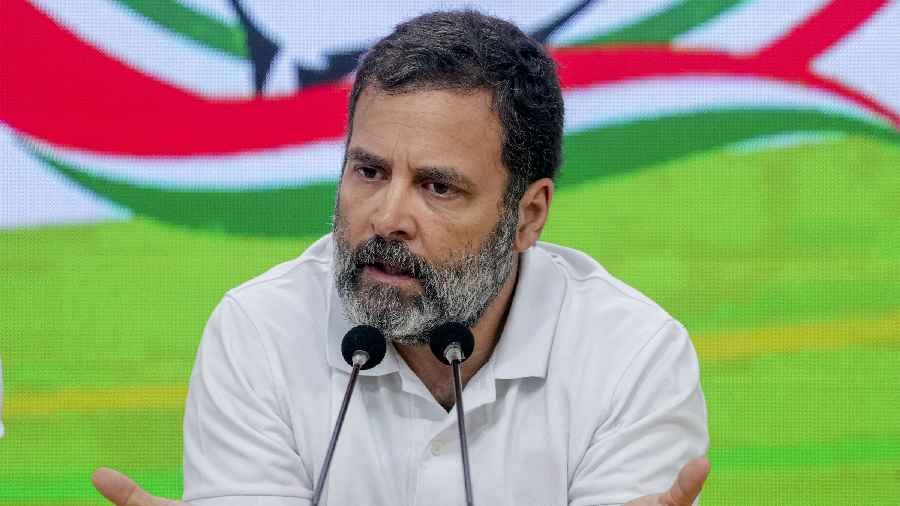Congress workers throughout India protest against the disqualification of Rahul Gandhi as a Lok Sabha MP. The protesters burnt effigies of Prime Minister Narendra Modi and disrupted the movement of a train.
Rahul Gandhi was stripped of his MP status by India’s parliament on Friday, following his conviction in a defamation case that resulted in a two-year prison sentence.
The court found him guilty of making derogatory comments about PM Narendra Modi’s surname during an election rally in 2019.
As a result of his disqualification from Parliament, Rahul Gandhi will be ineligible to contest any elections for a period of eight years including the two-year prison sentence he received for the defamation case, as well as an additional six-year period under the Representation of the People Act, 1951.
At a news briefing on Saturday, Mr. Gandhi stated that his disqualification from Parliament did not affect him, saying “It makes no difference to me if I am disqualified… Disqualify me for life…. I will keep going and will not stop.”
Many of the India’s political parties have supported Mr. Gandhi over his disqualification. On Friday, a total of 14 parties approached the Supreme Court with allegations that the federal government was targeting opponents of the BJP through misuse of investigative agencies.
According to Congress President Mallikarjun Kharge, the action taken against Mr. Gandhi was a direct result of his demand for a parliamentary investigation into allegations against the Adani Group.
After his disqualification, Mr. Gandhi stated that his responsibility was to safeguard the democratic principles of India. He said, “As I see it, my job is to defend the democratic nature of this country.”
In his statement, Mr. Gandhi also emphasized the importance of defending the institutions of India and protecting the voices of its underprivileged population. He further added that his duty included educating the public about the truth behind people like Mr. Adani, who, he believes, exploit their close relationship with the prime minister for their own benefit.
“I was disqualified because Prime Minister Narendra Modi is scared of my next speech on Adani… I can see it in his eyes.”
Supporters of Mr. Gandhi argue that his disqualification is indicative of the weakening state of India’s democratic system. In response, they have planned further protests against the government in the coming days.
Unless Mr. Gandhi’s sentence is suspended or he is acquitted in the defamation case, he will not be permitted to participate in the upcoming national elections scheduled for next year.
The ruling Bharatiya Janata Party (BJP) has stated that Mr. Gandhi’s disqualification was in line with parliamentary laws and regulations. They criticized his party for contesting the decision and questioning its validity.
According to Federal Labor Minister Bhupender Yadav, Mr. Gandhi insulted members of the Other Backward Classes (OBC) caste group by making derogatory comments about PM Modi’s surname, which falls under this category.
“Insulting any surname is not freedom of speech,” he said.
However, some experts have raised concerns about the severity of Mr. Gandhi’s sentence. Joyojeet Pal, an associate professor of information at the University of Michigan, noted that it was “highly unusual” for a first-time offender like Mr. Gandhi to receive the maximum penalty of two years’ imprisonment.
Professor Pal further added that in India, it is common for politicians at various levels to engage in extreme speech on social media and during public meetings. He noted that a conviction of this magnitude, resulting in the removal of the primary challenger to PM Modi, was nearly unprecedented.
